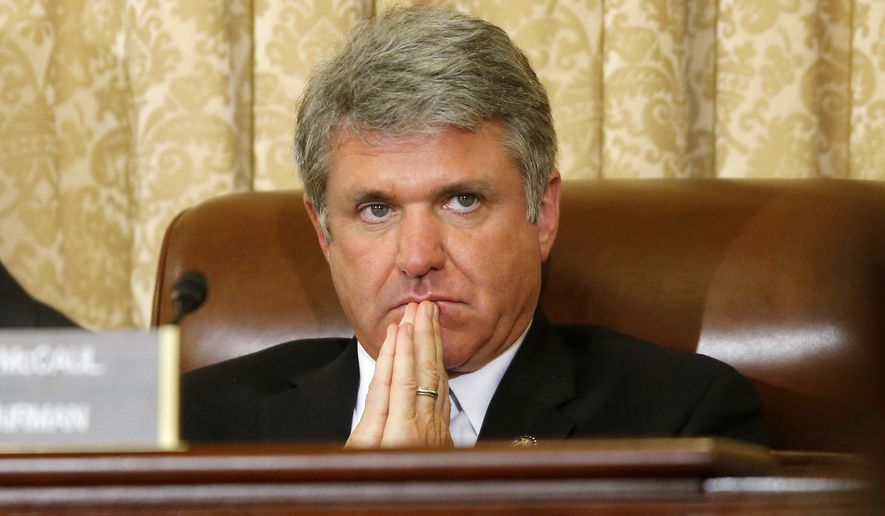On the second anniversary of the Boston Marathon bombing, two members of the powerful House Committee on Homeland Security said they want legally binding assurance from the FBI that it will share more information with local police departments on terror threats.
Rep. Michael McCaul, Texas Republican and the panel chairman, said after a Wednesday roundtable discussion on lessons learned from the bombing that the agency’s counterterrorism units should make formal and institutional some of its cooperation efforts with local police.
To do this, the Bureau needs to create a so-called “memorandum of understanding,” or a formal agreement with local police that outlines communication practices and information sharing, added Rep. Bill Keating, Massachusetts Democrat and a Homeland Security Committee member.
Both federal and local agencies have leaned heavily on informal and interpersonal relationships to help track and thwart potential terror threats. However, these communications should be formalized into a process, because information sharing cannot be left to chance amid increased sophisticated threats from terror groups like the Islamic State, Mr. Keating told The Washington Times.
“What has to remain – and be a common practice – is that information sharing is required, not the product of ’Oh we’re working well together,’” he said.
“It’s great to work well together, but you can’t rely on that, so we’re going to push forward to make sure that there’s actual memorandums of understanding. So that when local police are saying, ’I’m not getting what I was promised,’ they have something to point to,” he said.
Lack of cooperation and communication between federal and local authorities was a chief complaint of Boston Police Commissioner Edward Davis III, who told members of the Senate Homeland Security and Governmental Affairs Committee that year that federal authorities failed to share information about the terror threat with his officers.
The “street intelligence” that local law enforcement collects is a critical tool in the fight against terrorism, Mr. McCaul told The Times.
“To leverage the state and locals, I think, is the best model to preventing this because usually it’s the local officer who sees the first signs, you know, warning signs, or just the average person on the street,” he said.
The calls came on the second anniversary of the Boston Marathon bombing, which killed three people and wounded more than 260 others who were cheering their loved ones near the marathon finish line. Dzokhar Tsarnaev was convicted last week on 30 federal charges and will either be executed or spend the rest of his life in prison.
In Boston on Wednesday, church bells rang at the blast’s hour of 2:49 p.m. and people joined a moment of silence, some openly weeping and hugging near the Boylston Street finish line.
“It still feels like yesterday, to be honest,” Aleksander Jonca, a Boston resident who ran the marathon in 2013 and plans to run this year’s race on April 20, told the Associated Press. “Two years later I feel like we’re still struggling to find the words to describe what happened that day.”
Runners wearing Boston Marathon gear and bystanders with “Boston Strong” shirts fixed their eyes on the commemorative banners that had been revealed in a silent ceremony hours earlier. More than 100 blue and yellow balloons — the marathon’s colors — were released into a cloudless sky as the church bells faded.
At the Old South Church near the finish line, hundreds gathered for an interfaith service with Christian, Muslim and Jewish leaders who focused on healing.
“We turn now to acknowledge that life goes on,” said the Rev. Demetrios Tonias, dean of the Annunciation Greek Orthodox Cathedral in Boston. “Living goes on. Our prayers go on. Our grief goes on. But so, too, does our resiliency go on.”
⦁ This article is based in part on wire-service reports from Boston.
• Maggie Ybarra can be reached at mybarra@washingtontimes.com.




Please read our comment policy before commenting.